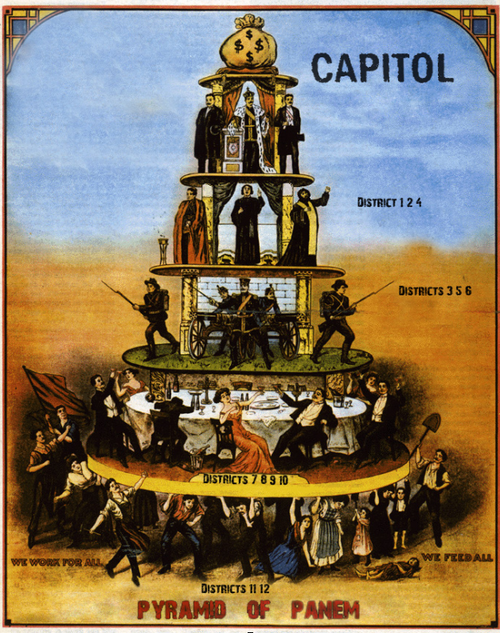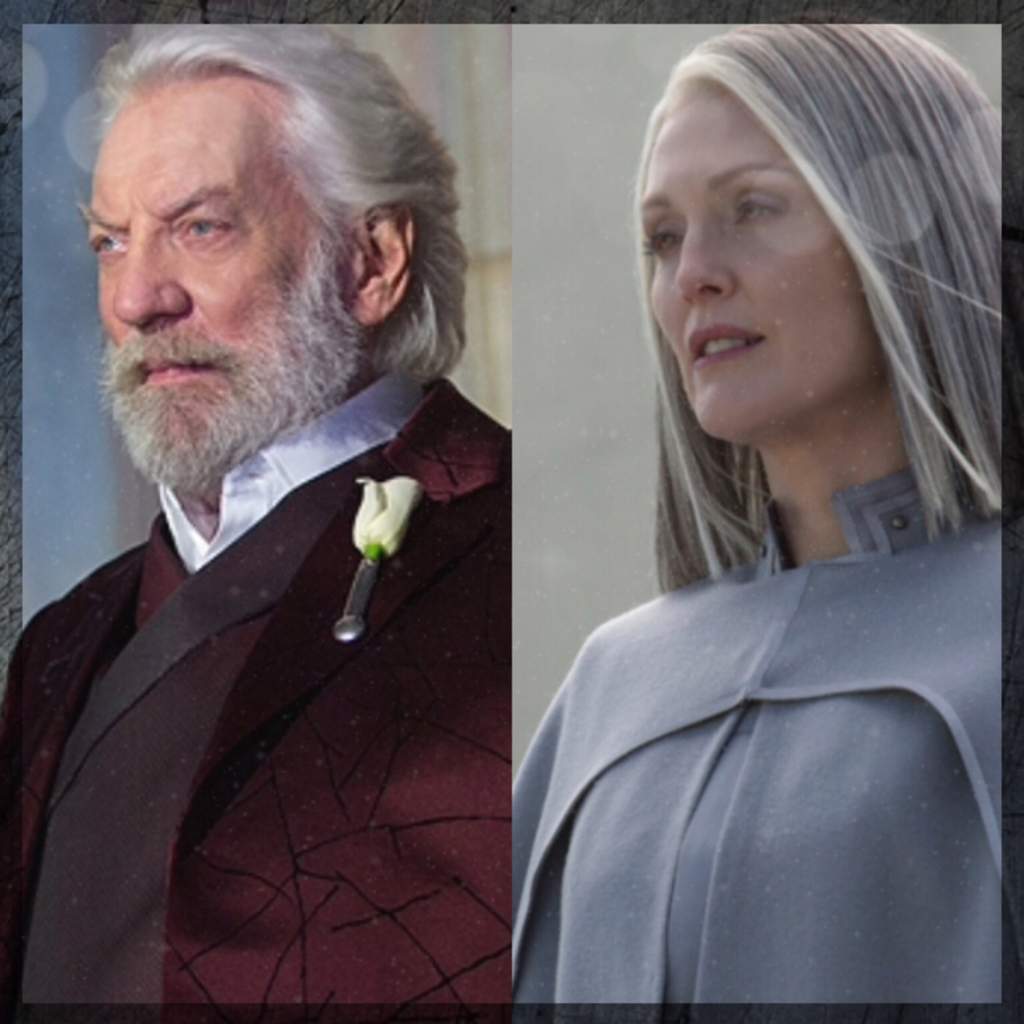 |
| The Hunger Games Trilogy. https://i.pinimg.com/originals/ce/ec/91/ceec91c6cf2fed33f1a713fc6521c240.jpg |
Ideology comes in many forms, but at its core it is the process through which a set of beliefs and values become normalized in a society (O'Brien & Szeman, 2017). President Snow and the Capitol spread the ideology that the Capitol is the sovereign leader over the districts and that the districts should not only surrender to the Capitol, but ought to be grateful to be under its leadership.
 |
| Hierarchy of Panem. https://wikieducator.org/images/thumb/f/f8/CapitolPower Diagram.png/500px-CapitolPowerDiagram.png |
The Capitol carefully crafted a hierarchy that encompasses both the social and economic contributions of the districts, and as a result, the ideology of colonialism is spread over the districts, as discussed by Connors in his article about Panopticism.
This hierarchy lends itself to the establishment of cultural hegemony, which is when the dominant group exercises control over the weaker group(s), specifically through the use of cultural and/or ideological means (O'Brien & Szeman, 2017). In The Hunger Games, President Snow demonstrated cultural hegemony over the districts through his limitations on the space in which members of the districts may occupy. The sovereignty of the Capitol, and of President Snow, was made obvious through his use of physical torture (i.e. Gale's whipping in the square) as well as his use of surveillance. These spectacles were designed to elicit "feelings of terror in those who witness them" and thus further increased Snow's sovereignty and power (Connors, 2014, 92).
 |
| Snow vs Coin https://pm1.narvii.com/6813/af417ee5c8e1f135609b8c61e3807afd572c7980v2_hq.jpg |
Both Snow and Coin manipulated their environments to maintain power and control over their "subjects." The environment provided both leaders with the opportunity to exercise total control over others by limiting the amount of space their people could occupy. For example, Snow refused to allow the districts to wander outside of the fences around each district, and they were not allowed communication with other districts. Coin, in a similar manner, kept her rebels underground in the new district 13 and refused to allow anyone to go anywhere unless they had express permission from their commanding officer. This was seen when Katniss wanted to go to the front lines in Mockingjay: Part 2 and Coin steadfastly refused to allow her to go beyond the space already provided for her. Snow and Coin believed that by manipulating space, they would be able to strengthen their power and hegemony over others.
 |
| President Snow Watching Katniss https://thehungergames2012.files.wordpress.com/2013/04/vlcsnap-2013-04-15-13h46m22s234.png?w=848 |
Even though Coin was supposedly the good guy, she nevertheless fell prey to power and grew as corrupt as Snow when she wanted to hold a Hunger Games with the children of the Capitol officials. Collins showed that it does not matter whether someone is on the right or the wrong side; what matters are the intentions, the corruption, and the use of manipulation to garner power. In the end, the actions of both Snow and Coin got them killed, as evident in the following clip, and it is the responsibility of everyone to hold others accountable and to analyze the actions and intentions of those in power so that corruption may be avoided as much as possible.
References
Connors, S. (2014). The politics of Panem: Challenging genres. Retrieved from:
https://drive.google.com/file/d/1-AtB_Apqjn6CBfouLe84upIzWsIQWz6i/view
Foucault, M. (1975). Discipline and punish: The birth of the prison. Retrieved from:
https://drive.google.com/file/d/1j1yfio2Nup5ABbfTjvC3OzzCt0cc6qQ1/view
O’Brien, S., & Szeman, I. (2017). Popular culture: A user’s guide. doi: 10.1002/9781119140399
No comments:
Post a Comment